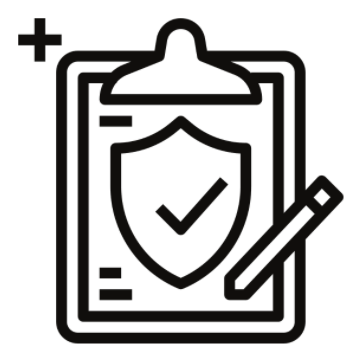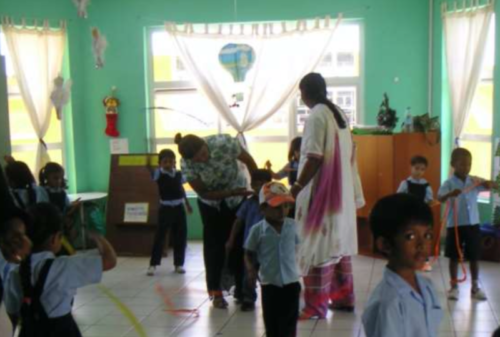
Quality Assurance for Early Childhood Education
The future of the African continent depends on the development of its children. The success of a nation depends on how well its education system can produce knowledgeable, skilled citizens prepared for the 21st-century workforce. One driver of this success is early childhood education (ECE). However, the ECE sector in Africa still faces many challenges, including lack of coordination, and shortages in the resources, investments, and personnel needed to develop high quality systems. Quality Assurance Systems (QAS), which refer to the process of ensuring that programs meet standards and have support for improvement, are an essential part of making quality ECE accessible to all children.

ADEA and Together for Early Childhood Evidence Host a Roundtable on ECE Quality Assurance Systems
In recent years, several innovative early childhood programs have been developed. There is great promise in scaling these programs to reach all children, and notable work to refine learning and quality standards to support play-based learning. But scaling effectively requires ongoing attention to implementation: are the standards influencing children’s experiences in classrooms? Do teachers have the knowledge, resources and support they need to implement the standards?
The value of Quality Assurance Systems for ECE in Africa was discussed during a roundtable event this past September, co-hosted by ADEA’s Inter-Country Quality Node on Early Childhood Development and Together for Early Childhood Evidence. The roundtable convened nearly 100 government, donor, NGO and researcher representatives across Africa to reflect on how countries can build effective QAS that will lead to high-quality ECE for all children.
There have been many new ECE initiatives and programs introduced across Africa in recent years. Quality provision is essential to ensure that children benefit from ECE programs. Quality Assurance Systems can help ensure that ECE programs adhere to a set of agreed upon standards and contribute to the development of a high-quality early childhood sector.
Ms. Maya Soonarane, ADEA ICQN-ECD Coordinator and moderator for the roundtable, added her thoughts on the importance of QAS for Africa: “Countries world over have committed to provide all children with quality early childhood development care and pre-primary education by 2030. Quality assurance, therefore, becomes the mechanism for countries to monitor their ECE systems and improve quality in a bid to ensure that the foundations of learning are established and strengthened.”
To promote Sustainable Development Goal 4.2–achieving equal access to quality pre-primary education–ECE must be prioritized, and this includes systems for understanding and guaranteeing quality in services. In her opening remarks, the Hon. Vice Prime Minister and Minister of Education, Tertiary Education, Science and Technology of the Republic of Mauritius spoke to the essential nature of QAS in providing quality ECE: “The fact that we are all committed to providing effective and efficient service in the domain of pre-primary education implies that we are clear about the quality dimension of services we must all address several questions: what type of ECE services are to be provided, of what quality, what would be the content and what would be the pedagogy. The bottom line becomes critical to know whether ECE systems are delivering high-quality services.”

The Challenges of Implementation in QAS
Building an effective QAS is challenging. As one participant noted, “There is currently no agency responsible for quality assurance at the Ministry of National Education and many ECE stakeholders, in the government especially, are unaware of the existing regulations, and there are few resources allocated to the monitoring and evaluation.”
To gain insight into countries’ QAS, the ECD Measure team conducted a survey of ECE QAS across 15 countries in Africa. Dr. Abbie Raikes, Associate Professor at the University of Nebraska and Founder of ECD Measure, shared that most countries have good building blocks in place, with standards, legal framework, and political support for ECE, however, challenges still exist. The survey findings reiterate the challenges posed by some roundtable participants: “There are still challenges such as the deficiency of resources, which results in poor coordination mechanisms, inability to benchmark across countries, poor enforcement of standards across all schools; combined with the inconsistent implementation of standards, the existence of many private providers, and inadequate QAS staff.”

Supporting Capacity Building for Inclusive QAS in Africa
Knowing that the standards for QAS exist in many countries already, there is an opportunity to support capacity building and coordination to apply those standards. Together for Early Childhood Evidence prioritizes capacity building in its country research projects, which includes supporting Save the Children Rwanda in training Rwandan government officials to conduct classroom environment assessments in early childhood centers. Rwandan government officials will be trained in not only collecting data on ECE classroom quality, but also on how to use the data for coaching, supportive supervision, and decision making.
Quality assurance also ensures accountability from all stakeholders involved in ECE programs, including governments, parents, teachers, and non-governmental organizations (NGOs). Ms. Kate Anderson, Founder and Director of Unbounded Associates, spoke to the importance of ensuring QAS are inclusive of all children: “These systems can help ensure children in early childhood education experience that helps them develop and learn. Governments should assume responsibility for the quality of childhood education in both public and private early childhood education programs. A Quality Assurance System should be for all children.”
The policy brief written in advance of this webinar offers four important questions that countries can consider when looking to develop QAS for ECE:
- Consider the purpose of developing a QAS in your country. What are the goals and targets?
- Are there existing service quality standards that can be adapted to your context? If not, how can these standards be found and/or developed?
- What are the unique and contextualized needs of your country’s ECD sector? How will these shape the development of your QAS?
- How can you ensure political, institutional, and financial stability for your QAS?
Providing quality care and education to children in early childhood is a strategic investment in national and global development, and a critical factor in promoting children’s well-being. For more on QAS for ECE in Africa, check out Together for Early Childhood Evidence’s policy brief and presentation from the Roundtable.
This Roundtable discussion was hosted by the Association for the Development of Education in Africa (ADEA), through its Inter-Country Quality Node on Early Childhood Development (ICQN-ECD) and Together for Early Childhood Evidence, on 22nd September 2021.
This blog was written by Ruth Namara and Anna Pettee, with editorial support from Kate Anderson and Rebecca Sayre.
